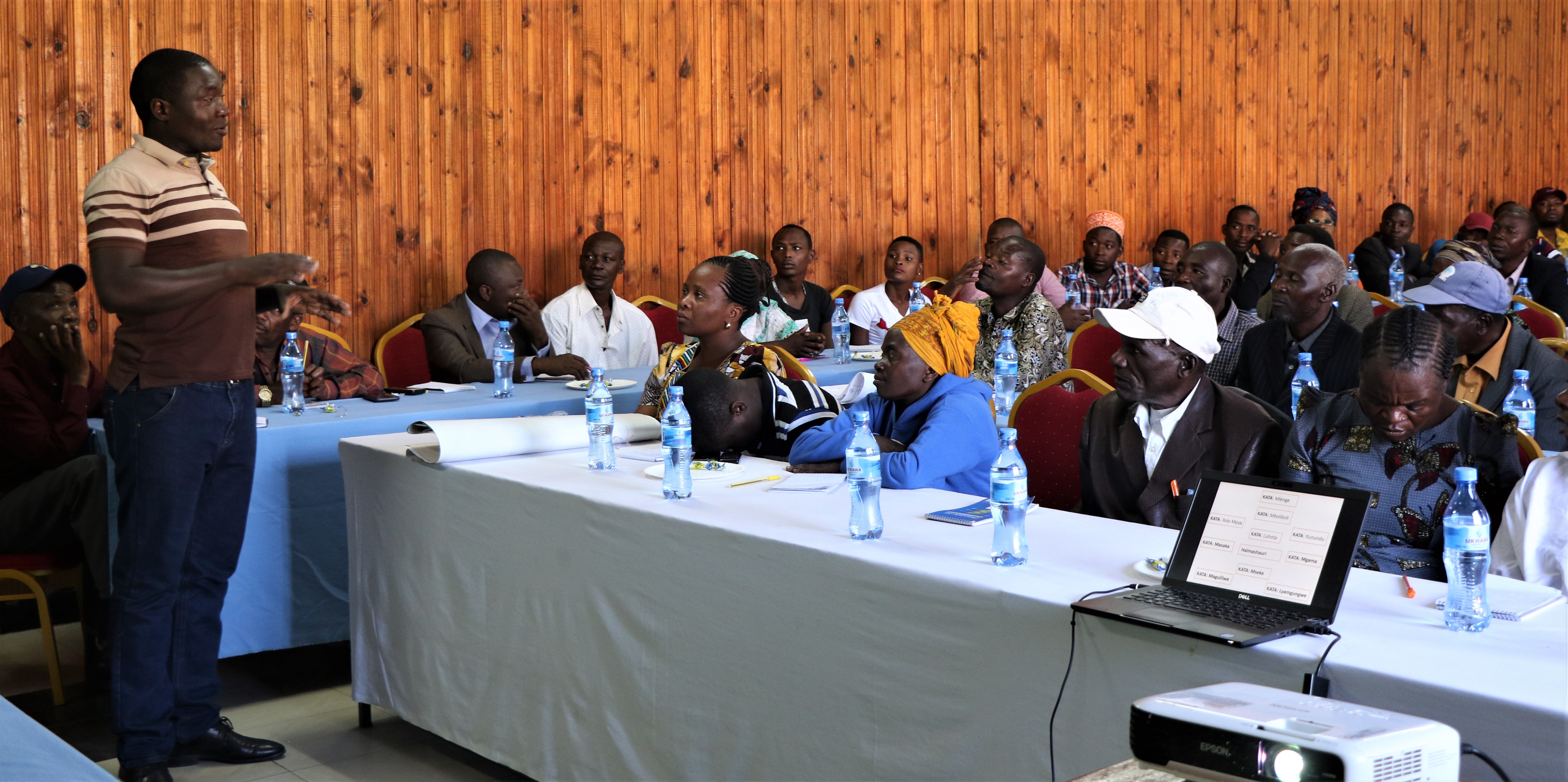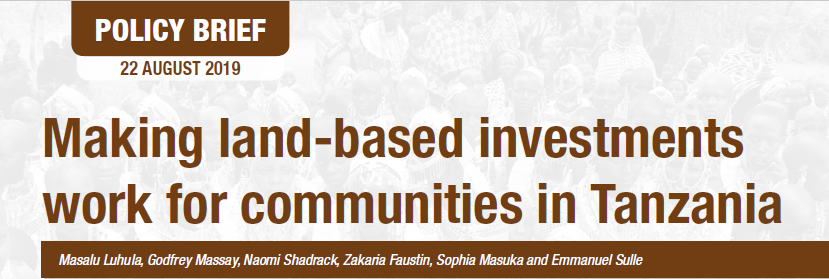ADRESSING THE EFFECTS OF CLIMATE CHANGE AND WEATHER VARIABILITY THROUGH PARTICIPATORY SCENARIO PLANNING (PSP) IN IRINGA RURAL AND SIMANJIRO DISTRICTS.
post_6.jpg

Participatory Scenario Planning (PSP) is a platform for collective sharing and interpretation of climate/ weather forecasts. PSP is conducted as soon as a seasonal weather forecast is available from Tanzania Meteorological Agency (TMA). From 9th to 11th and 23rd to 25th November, 2020 TNRF through Ardhi Yetu Project (AYP) plus, in collaboration with TMA and Care Tanzania have conducted PSP in Iringa rural, and Simanjiro districts. The PSP in Simanjiro district also involved representatives from Kiteto district which is also under TNRF areas of AYP plus implementation. During the PSP, forecasters from TMA shared weather forecasts for the Southern highlands and Northern highlands Meteorological zones covering Iringa and Manyara regions respectively. However, Traditional Forecasters using Indigenous Knowledge (IK) also shared their forecasts using traditional indicators according to Hehe and Maasai traditions.
The PSP comprised of representatives from Community groups (farmers and pastoralists), Women groups, Village Executive Officers (VEOs), Ward Adaptation Planning Committees (WAPCs), Traditional Weather Forecasters from (IK groups), Village and/ Ward Extension Officers and District Council Officials from Departments of Community Development, Agriculture Irrigation and Cooperatives, Livestock and Fisheries as well as Environmental Management.
The discussion creates a common platform for climate communication which respects, reviews and combines knowledge from communities and different groups within them, meteorological services and service providers. The workshop availed a space for sharing weather information from both local and scientific knowledge, discussing and appreciating the value of the two sources and finding ways to interpret the information into a form that is locally relevant and useful. There were different methods used to share knowledge among participants such as plenary discussions, presentations and group works assessing their likely hazards, risks, opportunities and impacts, and developing scenarios based on the assessment.
The immediate solution taken by TMA was taking contacts of people so they can send information of weather forecast and early warnings in either daily or monthly basis. Participants produced resilience plans for the anticipated weather forecasts including scenarios when there is normal rains, above normal rains and below normal rains.
In the discussion, the participants communicated challenges they face based on lack of understanding toward weather forecast, explaining the need to get more training on climate change and weather forecasting information.
Conclusion and Recommendation
There should be a link between the government and community actors to support community adaptation action plans (CAAPs) and empower communities through improved contacts and relations. TMA should share interpretation of weather forecasts to generate information which can be understood and used by stakeholders and community in general, to enable them taking risk and uncertainty into account. Local governments should act as the bridge between TMA and traditional weather forecasters to share their knowledge on weather forecasts.

